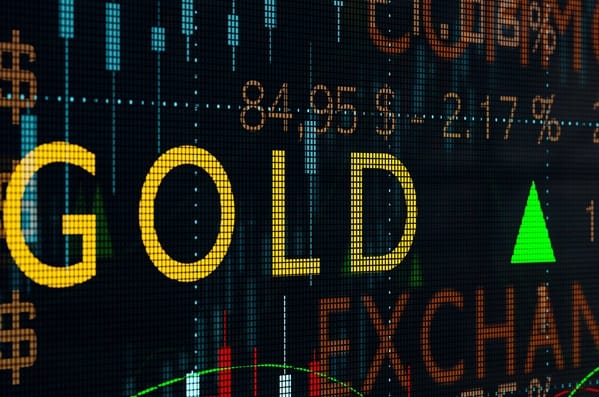Bussiness
Bitcoin competes with gold – London Business News | Londonlovesbusiness.com

Over the past few months, Bitcoin has entered into fierce competition with gold, not only in terms of its price and performance in financial markets but also in attracting the attention of institutions and investors.
Bitcoin exchange-traded funds (ETFs) listed in U.S. markets now hold over 1.13 million Bitcoin, with a total value exceeding $121.83 billion.
This figure surpasses 88% of the assets managed by gold ETFs in the U.S. stock market, reflecting a significant shift in how both assets are viewed as investment vehicles.
This makes Bitcoin a real challenge to gold as a “haven” asset during times of economic and geopolitical crises.
In my view, the increasing shift towards Bitcoin is no coincidence; several factors have contributed to Bitcoin’s rise to prominence, from strong institutional support to growing government interest.
Major financial institutions like Bitfinex and Binance continue to encourage and direct massive investments towards Bitcoin, signalling a radical shift towards cryptocurrencies as mainstream assets. In the first week of December 2024, over $2.167 billion was poured into Bitcoin ETFs, showcasing the high level of confidence investors have in the “digital gold.” Undoubtedly, these investments align with forecasts that Bitcoin’s price could reach $130,000 to $150,000 by mid-2025.
Despite this momentum, the fact that Bitcoin now accounts for 88% of the assets in gold ETFs in the U.S. suggests, in my opinion, an unprecedented transformation in how cryptocurrencies are perceived. This trend could support the idea of “digital gold,” where some believe Bitcoin could eventually replace gold, especially with its increasing appeal amidst geopolitical and economic tensions. I believe Bitcoin is no longer just an attractive option for institutional investors but has also become a hedge against inflation and financial crises, roles that gold has traditionally played.
Furthermore, I don’t think we can overlook the significant role played by the newly elected U.S. President, Donald Trump, in boosting Bitcoin’s position. Not only did he announce support for cryptocurrencies, but he also proposed the idea of establishing a U.S. strategic Bitcoin reserve, which would solidify Bitcoin’s status on the global stage and give it broader acceptance as a strategic asset in national reserves.
This announcement also reflects a major shift towards integrating cryptocurrencies into national financial policies. While the actual implementation of this idea may take time, merely contemplating it demonstrates a strategic optimism regarding Bitcoin’s role in the global economy.
On the traditional markets side, we’ve seen how MicroStrategy’s inclusion in the Nasdaq 100 index has helped increase capital flows into Bitcoin. This listing of a giant company, which is one of the largest Bitcoin holders in the world, enhances institutional confidence in Bitcoin and reflects the ongoing evolution of cryptocurrencies into the traditional financial system. These moves, including rebalancing investment portfolios to include MicroStrategy shares, could, in my view, lead to further capital flows into Bitcoin, supporting it against any future market fluctuations.
Additionally, I believe Bitcoin is on its way to achieving new levels of growth, with markets closely watching the psychological level of $110,000. This transition, which is very close at present, reflects how Bitcoin is experiencing increased acceptance and interest, which could lead to a radical shift in financial markets. However, despite the strong optimism, there is growing caution about market volatility, as profit-taking and speculative trading could cause sharp price fluctuations in the short term.
Looking ahead, Bitcoin will remain a central topic in financial markets and the global economy. With the strategic moves by major financial institutions and governments, Bitcoin appears to be a true alternative to gold in certain aspects. However, it remains to be seen whether this confidence in “digital gold” will persist or face new challenges over time. What is certain for me is that Bitcoin has begun to define its role in the global economy, and its impact on financial markets will not be easy to ignore shortly.









